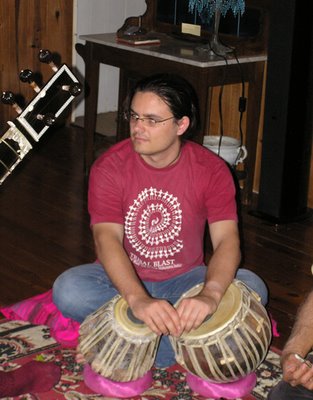I have problems with comma placement. Most of the time it's due to not proof reading my work, other times it's due to my lack of grammatical training. What I have noticed this week, however, is how many people have problems with pronouns. This week I had a piece of assessment due for a philosophy subject I'm studying and I had the opportunity to view some other students work. I have read 14 pieces of assessment so far. While on the most part these essays were of a good quality there was a general problem, that being the use of pronouns.
I think this problem is due to the response to a particular students question relating to the use of the personal pronoun I. You see, my tutor advised against using this (another grammatical quirk I've noticed recently is the use of said or former as pronouns to refer to a previous subject, not strictly 'wrong', I know, but still not necessary especially when the reader will need to read previous sections of text to gather the meaning again) pronoun so the essay would remain neutral. While there's little wrong in many circumstances with avoiding personal pronouns in academic writing the directive of the tutor seems to have shocked many students into absurd pronoun usage.
You see there is a general rule governing the usage of pronouns and this rule states (Do you like my use of states? This is not grammatically correct either. rule is an inanimate object. I should perhaps have said - this rule of which is stated, but I'm not that idiomatic), a pronoun requires a true antecedent. Nearly every essay I read used it without an antecedent, which in itself may not be wrong but it is subjectively governed. For example, if I say "Epicurus offered to theorise but it was not accepted" then it is not governed by a true antecedent. I would need to say "Epicurus offered his theory but it was not accepted". Maybe I'm being to idiomatic here but ambiguity is the worst enemy of academic writing.
Another common mistake that I've noticed focuses on the use of he. There is also nothing wrong with using the word he but this pronoun, whether he, him, his, refers to the subject of the sentence. Notice I've used the word sentence here as this is important. You cannot use the pronoun he etc. in a sentence if the subject is yet to be identified in the sentence or if there is more than one applicable subject. I cannot say "Epicurus is a classist. He is, therefore, evil" because the he is not adequately governed. It makes sense audibly but not when read. I could write "Epicurus is a classist and he is, therefore, evil". I should probably even write "Epicurus is a classist so he is evil". I cannot, also, say "Locke describes Epicurus as a hedonist so he is, therefore, evil". The he in this sentence doe's in fact govern Epicurus but it is ambiguous. I may have been attempting to slander Locke. English is, as far as my knowledge extends, the only language that is ambiguous with he type pronouns. Latin has two he type pronouns with only one being subjective and my other language, Hindi, has three or perhaps more he type pronouns.
Antecedents to pronouns are necessary and do keep them in mind. There may be cases where you can place the antecedent after (I know it sounds absurd placing an antecedent after a pronoun) the pronoun but these are extremely limited. Look at this statement, "If the baby does not thrive on raw milk, boil it". It is here plain to see for all.
I won't go on and mention all the pronoun errors. I've likely made many myself. I know I've placed many commas in incorrect locations in previous works so I'm not the best person to comment on grammar. I just received an essay back today and while I did receive a HD I have found seven misplaced commas. One of these misplaced commas changes the meaning of the sentence drastically but my tutor either didn't notice or agreed with the alternate meaning. I won't comment on my essay that I've just submitted because my tutor may read this and....well you get the picture.






